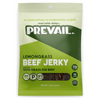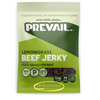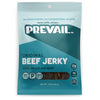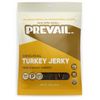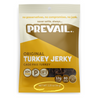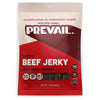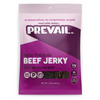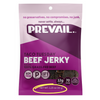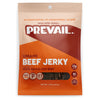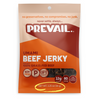Why is Soy Bad For You?

Soy has become a popular ingredient in many foods today, and it is often marketed as a healthy and sustainable alternative to animal products.
However, some experts argue that consuming soy may not be as healthy as many people think. In this article, we'll explore why soy may not be the best choice for your health and what alternatives are available.
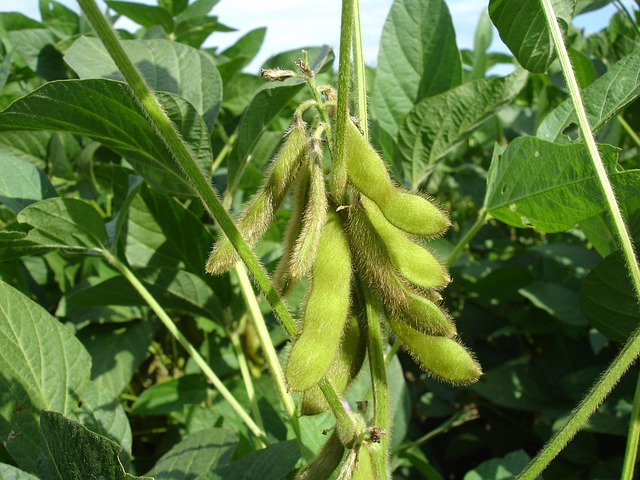
What is Soy?
Soy has become a popular buzzword in recent years, with more and more people incorporating soy based foods into their healthy diet. But what exactly is soy?
At its most basic, it is a protein-rich legume that can be consumed in a variety of forms, from whole soy foods like tofu and edamame, to processed options like soy protein isolates. One of the unique aspects of soy is its high levels of plant estrogens, which have been said to link to a range of health benefits (which actually isn't true).
Many people have been advocating for soy being one of the best meat alternatives and a complete protein. There are also many soy protein supplements and fermented soy products on the market. While it may seem that soy should be considered a health food, the effects of soy can actually be worse than you would think.
Soy Contains Anti-Nutrients
One of the main concerns with soy is that it contains anti-nutrients like phytates and lectins. These compounds can interfere with the absorption of important minerals like iron, calcium, and zinc in your body.
Moreover, they can cause digestive issues and inflammation in some individuals. The nine essential amino acids are harder to absorb with high soy intake.
Soy is Genetically Modified
Most of the soy grown today is genetically modified, and this is a worrying issue for many health experts.
There is limited research on the long-term effects of consuming GM soy, but some studies suggest that it may lead to a range of health problems from infertility and allergies to cancer. Processed soy products are not part of a balanced diet.
Soy Contains Hormones
Soy contains natural compounds called phytoestrogens, which can mimic the effects of estrogen in your body. While some people claim that these compounds can have health benefits, others argue that they can disrupt your hormonal balance and even increase your risk of breast cancer.
High soy intakes can lead to menopausal symptoms, cardiovascular risk markers, insulin resistance, high blood pressure, high blood sugar, and decreased thyroid function.
Soy is Often Processed
Many of the soy products you find in grocery stores are highly processed, and this can limit their nutritional value. For example, soy protein isolate, a common ingredient in processed foods, is stripped of fiber, vitamins, and minerals.
Eating too much processed soy may increase your risk of health problems like heart disease. Eating minimally processed foods is important and most "minimally processed soy foods" are very bad for you.
There are Better Alternatives
If you're looking for a healthy and sustainable protein source, you don't have to rely on soy. There are plenty of other plant-based options like lentils, beans, quinoa, and nuts that are rich in protein, fiber, vitamins, and minerals.
You can also choose organic, non-GMO soy products in moderation to minimize the risks associated with consuming soy. Animal protein is always your best bet for a healthy diet.

The Truth About Soy and Its Link to Breast Cancer, Prostate Cancer, and Heart Disease
Soy and its products have become increasingly popular among people who seek healthier food options. Soy milk, tofu, tempeh, and other soy-based products are touted for their nutritional benefits, including high protein content, low-fat content, and a wealth of nutrients.
However, some studies show that soy may be linked to various health issues, including breast cancer, prostate cancer, and heart disease.
Breast Cancer
One of the most controversial topics surrounding soy is its potential link to breast cancer. Research has suggested that soy contains compounds that mimic estrogen, a female sex hormone.
High levels of estrogen have long been associated with an increased breast cancer risk, especially in postmenopausal women. Thus, some studies suggest that consuming high amounts of soy-based products may increase the risk of breast cancer.
Prostate Cancer
Like breast cancer, some research suggests that soy may affect the risk of developing prostate cancer. Soy contains compounds called isoflavones, which have weak estrogenic activity.
Some studies suggest that these compounds may reduce the risk of prostate cancer by inhibiting the growth of cancer cells. However, other studies have found that soy may increase the risk of aggressive prostate cancer in men.
Cardiovascular Disease and Heart Disease
While soy may have potential benefits for some health conditions, such as reducing high cholesterol levels, some studies suggest it may also have negative effects on the heart and cardiovascular system.
One study found that soy protein consumption was associated with an increased risk of heart disease in women with diabetes.
Eating Soy Foods Might Be Bad For Your Health Conditions
Soy is a complex food with potential health benefits and risks. While soy is generally considered safe for most people, its impact on individual health may vary. The evidence linking soy to breast cancer, prostate cancer, and heart disease is mixed, and more research is needed to draw a definitive conclusion.
However, people with a history of these health conditions may want to talk to their doctor before adding soy-based products to their diet. It's always a wise idea to maintain a balanced and varied diet and consult your healthcare provider if you have any concerns about your dietary choices. In conclusion, it's essential to evaluate your diet and make informed choices to achieve optimal health.
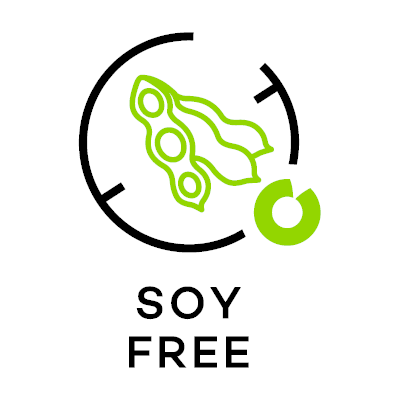
Cutting Out Soy from Your Diet: Tips and Tricks
More and more people are opting to cut out soy from their diets for various reasons, from allergies and intolerances to concerns over its impact on hormones. Thankfully, with the wide range of delicious and nutritious alternatives available nowadays, going soy-free doesn't have to mean sacrificing flavor or nutrition.
Know What to Look For
The first step to cutting out soy from your diet is to learn how to spot it in food labels. Soy can be listed under a variety of names, such as soy lecithin, soy protein isolate, soy flour, and soybean oil. It's often found in processed foods like baked goods, snacks, and meat substitutes. Check the ingredients list carefully and look for alternative products that don't contain soy.
Go Back to Basics
One of the best ways to avoid soy is to focus on whole foods that don't require a nutrition label. Fresh fruits and vegetables, lean proteins like poultry and fish, and whole grains like quinoa and brown rice are all soy-free options that offer plenty of nutrients and flavor. Experiment with new recipes that rely on whole foods and natural ingredients for maximum health benefits.
Find Soy-Free Substitutes
If you're used to relying on soy-based products like tofu, soy milk, and meat alternatives, don't worry. There are plenty of delicious and healthy substitutes out there that don't contain soy. For example, try almond milk, cashew cheese, tempeh made from non-soy legumes, and quorn, a protein from fungi. Read reviews and try different brands to find the ones you like best.
Watch out for Hidden Soy
Even if you're diligent about checking food labels, soy can still sneak into your diet in unexpected ways. Be mindful of condiments like soy sauce, salad dressing, and mayonnaise that may contain soy derivatives. Ask your server about soy-free options when dining out, and don't be afraid to bring your own soy-free snacks to work or school to avoid temptation.
Get Support and Inspiration
Going soy-free can be challenging, especially if you're used to relying on certain soy-based products or flavors. Don't be afraid to seek support from like-minded individuals through online forums or social media groups. You can also find inspiration from cookbooks, blogs, and podcasts that specialize in soy-free eating. Make it a fun and exploratory process to find new flavors and ingredients that excite you.
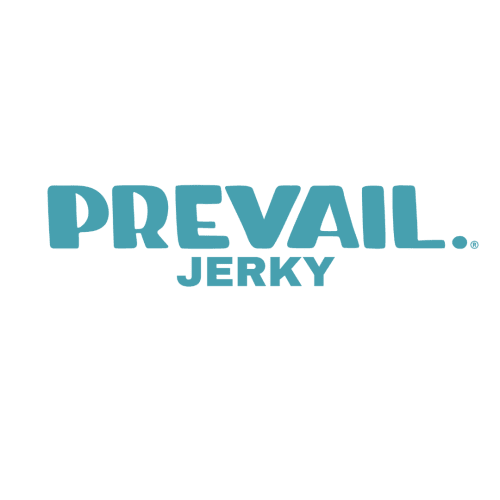
Prevail Jerky
If you're looking to cut out your soy consumption and you're looking for a great snack, try Prevail Jerky! When it comes to finding the best jerky in the market, there really is no competition - Prevail Jerky takes the cake. Not only is our jerky deliciously savory and tender, but it's also made with premium ingredients and crafted with care.
With flavors ranging from Original to Unami, this jerky is perfect for any snack occasion. Perfect for road trips, camping trips, or just a quick snack during the day, Prevail Jerky is the best way to satisfy your cravings while still feeling good about what you're eating. Trust us, once you've tried Prevail Jerky, you'll never settle for anything less.
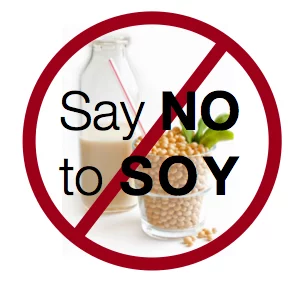
Conclusion
In conclusion, while soy is often marketed as a healthy food, it may not be the best choice for your health. Soy contains anti-nutrients, is genetically modified, contains hormones, and is often processed.
However, there are many other plant-based sources of protein that are healthier and more sustainable. It's always important to do your research and choose foods that are best for your individual dietary needs and preferences.


